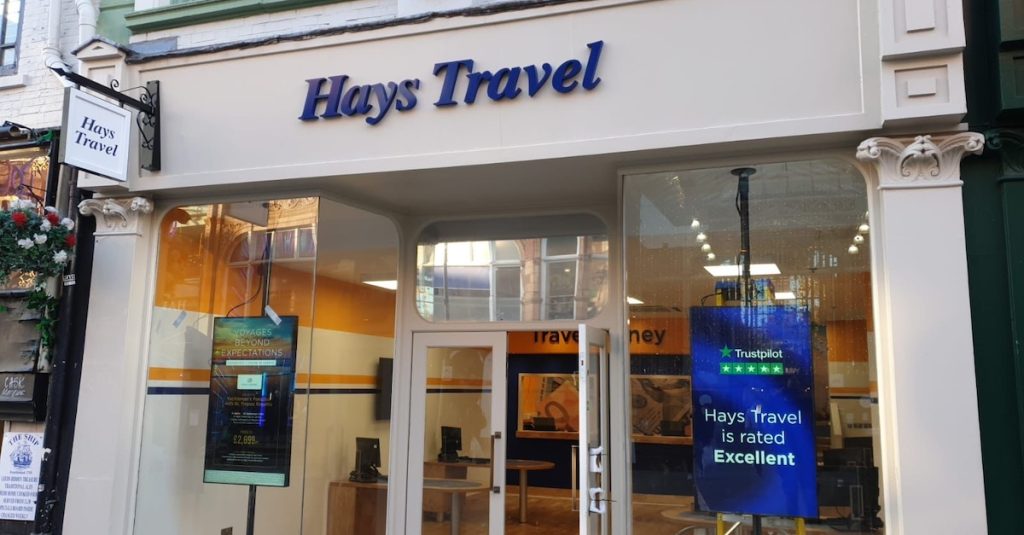Hays Travel has once again underscored its dedication to enhancing the high street, despite the sector’s neglect by investors. This strategic commitment was reiterated at the recent Abta’s Travel Convention.
The firm recognises the abundant opportunities present within the high street segment, emphasising a balanced growth model through both physical and digital channels.
Renewed Focus on the High Street
Hays Travel has reaffirmed its dedication to high street growth, despite a noticeable neglect from investors concerning the travel retail sector. This commitment was echoed by Ken Campling, Hays Travel’s group finance director, during his speech at Abta’s Travel Convention. With 490 stores currently operating, Campling emphasised the multitude of opportunities still available in this often overlooked area.
In marking the fifth anniversary of the acquisition of Thomas Cook’s retail estate, Campling noted the absence of a decline in high street presence. “Holidays remain a top priority for consumers,” he highlighted, signifying the resilience and ongoing relevance of the physical retail model. Such observations propose that the high street might retain its importance in travel retail.
Investment and Strategic Growth
Growth, according to Campling, is not an automatic outcome but a continual opportunity for the high street in the travel sector. He mentioned, “I don’t think there is any reason for [growth] to stop in the short to medium term.” This is supported by Hays Travel’s substantial investment of £40 million in acquisitions over recent years.
The company’s strategy extends beyond physical stores, focusing on digital advancements, such as the Hays Travel app, designed to engage younger audiences. This dual approach signifies Hays Travel’s attempt to balance traditional retail with modern technology. Moreover, there is a strong emphasis on expanding their homeworking network to offer better opportunities.
Future Directions and Innovations
Positioning itself as a key player on the high street, Hays Travel is exploring innovative approaches to maintain its growth trajectory. The concept of the Hays Travel Independence Group and a robust homeworking network are pivotal to this vision.
Campling hinted at removing potential barriers for new entrants into the travel industry. “We can handle the regulatory and compliance sides,” he stated, indicating support for those joining the industry as homeworkers. Such initiatives are expected to invite fresh talent into the sector.
Acknowledging PwC’s exclusion of travel retail as a growth area, Campling remarked on the company’s continual efforts to listen to its constituents – their employees, customers, and communities. These interactions are instrumental in keeping Hays Travel aligned with market demands.
Community-Centric Business Approach
Despite being overlooked by investors, Hays Travel remains committed to the high street, demonstrating resilience and adaptability. Community engagement, through its branches, forms a core part of its strategy.
Campling emphasised the significance of understanding and delivering what the local community desires, asserting, “We want to sell what our customers want.” This customer-centric approach ensures that each outlet is in sync with regional demands and preferences. This method enhances customer satisfaction and loyalty.
By continually engaging with communities and tailoring their services accordingly, Hays Travel maintains its relevance. The approach creates a symbiotic relationship where both the company and the consumers benefit, solidifying a trust-based relationship with its customer base.
Digital Integration and Customer Engagement
In an era where digital transformation is pivotal, Hays Travel integrates technology and customer engagement effectively. The launch of the Hays Travel app marks a step towards engaging younger, tech-savvy customers. This diversification of services aims to amalgamate physical and digital spaces, making travel booking more accessible.
Campling pointed out that the development of their online platforms does not undermine their high street operations but rather complements them. The combination of in-person service with digital convenience caters to a more comprehensive customer experience.
Technological advances are employed not just for consumer ease but also to streamline internal operations. This dual advantage signifies a strategic move to uphold efficiency and innovation in the business model.
High Street’s Role in Brand Identity
The presence of Hays Travel on the high street plays a crucial role in strengthening its brand identity. With a legacy of traditional service, the brand’s footprint in physical locations enhances consumer trust and visibility.
Campling claimed, “The high street is still very important and vibrant”. This statement reveals the avenue’s significance in maintaining brand loyalty and reaching a broader audience. It’s not just about sales but about nurturing a community connection.
Physical stores, when combined with digital strategies, provide a holistic approach to customer interaction. This integrated model supports Hays Travel in delivering comprehensive service, reinforcing its commitment to both tradition and innovation.
Conclusion and Outlook
With its unwavering commitment to the high street, Hays Travel looks towards a promising future for travel retail. By balancing traditional retail with technological innovations, the company positions itself to cater to evolving consumer needs.
This approach not only capitalises on immediate opportunities but also ensures sustainability in a competitive market. Hays Travel’s methods exemplify strategic foresight and adaptability, paving the way for continued relevance and success.
Hays Travel’s continuous investment in the high street is a testament to its forward-thinking approach. The adaptation towards digital and community-focused strategies positions the company for sustainable growth.
By addressing both current and future consumer needs, Hays Travel ensures it remains a resilient player in the dynamic travel retail market.

